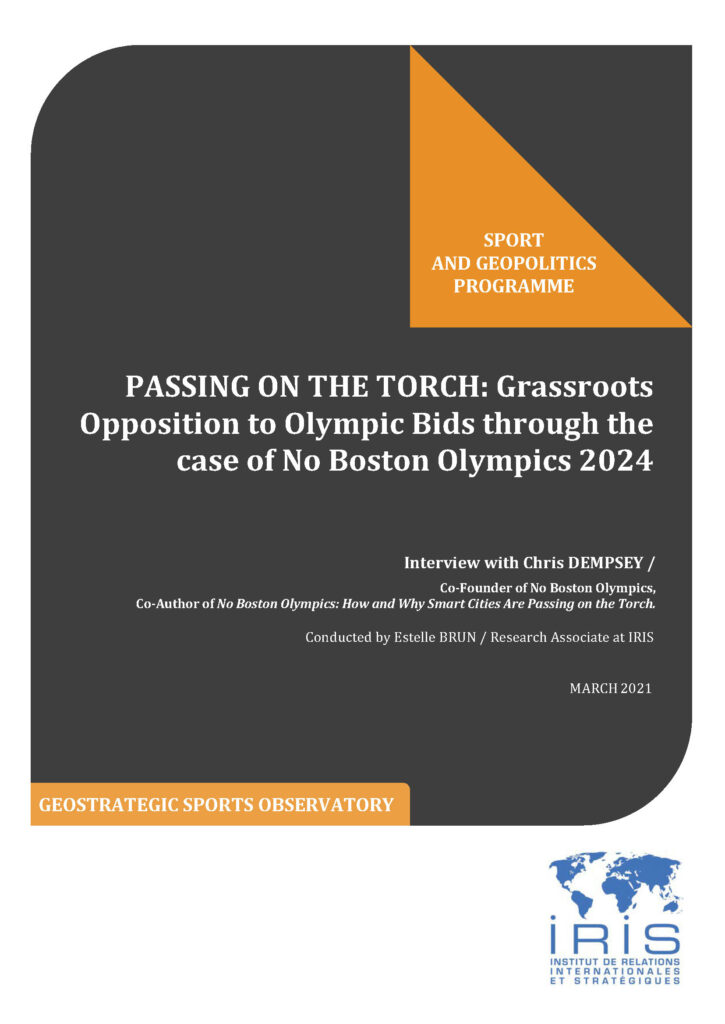Notes / Sport et géopolitique
12 mars 2021
Passing on the Torch: Grassroots Opposition to Olympic Bids through the case of No Boston Olympics 2021

No Boston Olympics was a grassroots organisation which originated from local citizen opposition to the Boston bid for the 2024 Summer Olympic and Paralympic Games. In July 2015, the United States Olympic Committee and the International Olympic Committee (IOC) eventually abandoned the Boston 2024 bid.
IRIS: Boston has a very powerful sports culture with local teams excelling notably in baseball, basketball, American football, and ice hockey. It is also home to numerous universities with an equally lively college sports culture. Considering the role of sports in Bostonian culture and identity, why were most Bostonians opposed hosting one of the most popular mega-sporting events?
CHRIS DEMPSEY: Boston is the best “sports town” in the United States. We love our sports teams and have celebrated many championships over the last two decades. We take great pride in hosting the Boston Marathon, the oldest competitive marathon in the world, whose initial running in 1897 was inspired by the first modern Olympic Games in 1896. This love for sports contributed to Bostonians supporting the 2024 Summer Olympic bid when it was first proposed. Support remained safely above 50 percent as the bid advanced through the United States Olympic Committee process in 2014 and into 2015. But Bostonians began to turn against the bid as they learned more details about the enormous costs associated with the Games and the secretive, anti-democratic bidding process embraced by the IOC, the United States Olympic and Paralympic Committee (USOC), and the bidders. As proud as we are of our sports teams, we are equally proud of our place as the birthplace of the American Revolution and the cradle of American democracy. We don’t like public decisions to be made without sufficient public input, and Boston 2024’s initial refusal to support a referendum was just one example of a bidding team that disrespected the democratic process. The costs were also a concern. In the United States, the federal government provides substantial support only for ensuring the security of the Olympic Games. It does not support the costs of Olympic operations, venues, or related projects. That meant all the financial risk of cost overruns fell squarely on state and local taxpayers…


